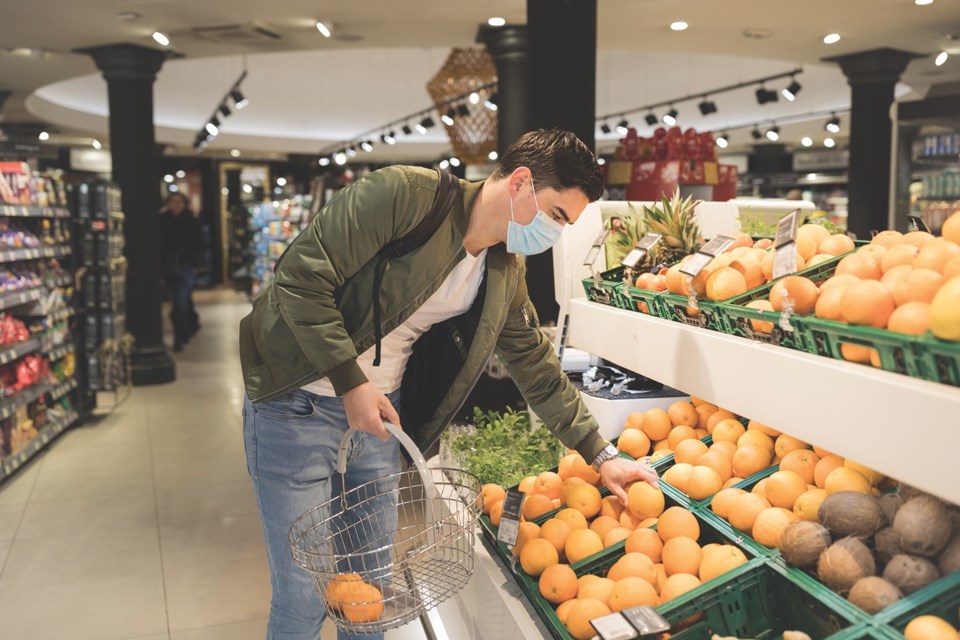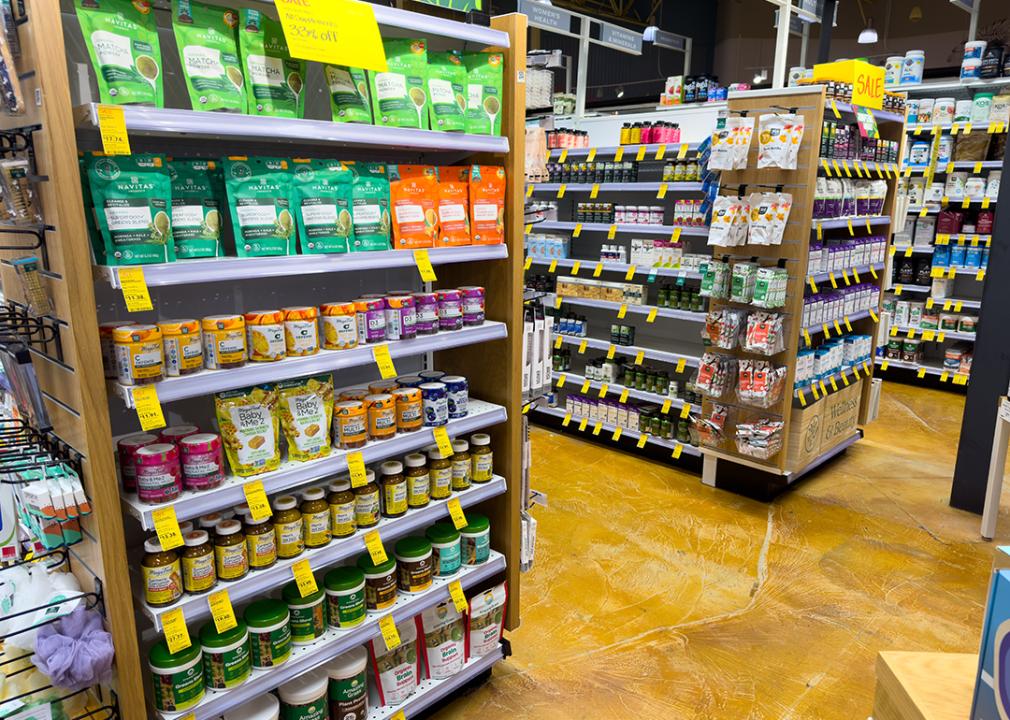
7 key food trends for 2025 forecasted by Instacart purchasing data
As 2024 draws to a close and the new year approaches, Instacart shares its anticipated food and grocery trends for 2025. To develop this forecast, Instacart analyzed its purchase data from 2024 to uncover standout insights about how people filled their carts (and kitchens) with items that trended across pop culture and social media over the past year.
The data revealed these key insights:
- Health and wellness are continuing to influence people's grocery purchasing decisions.
- Cooking and baking from scratch is on the rise.
- Enjoying diverse flavors is becoming increasingly important to many.
Here's a deeper dive into the seven top food and grocery trends forecast for 2025.
![]()
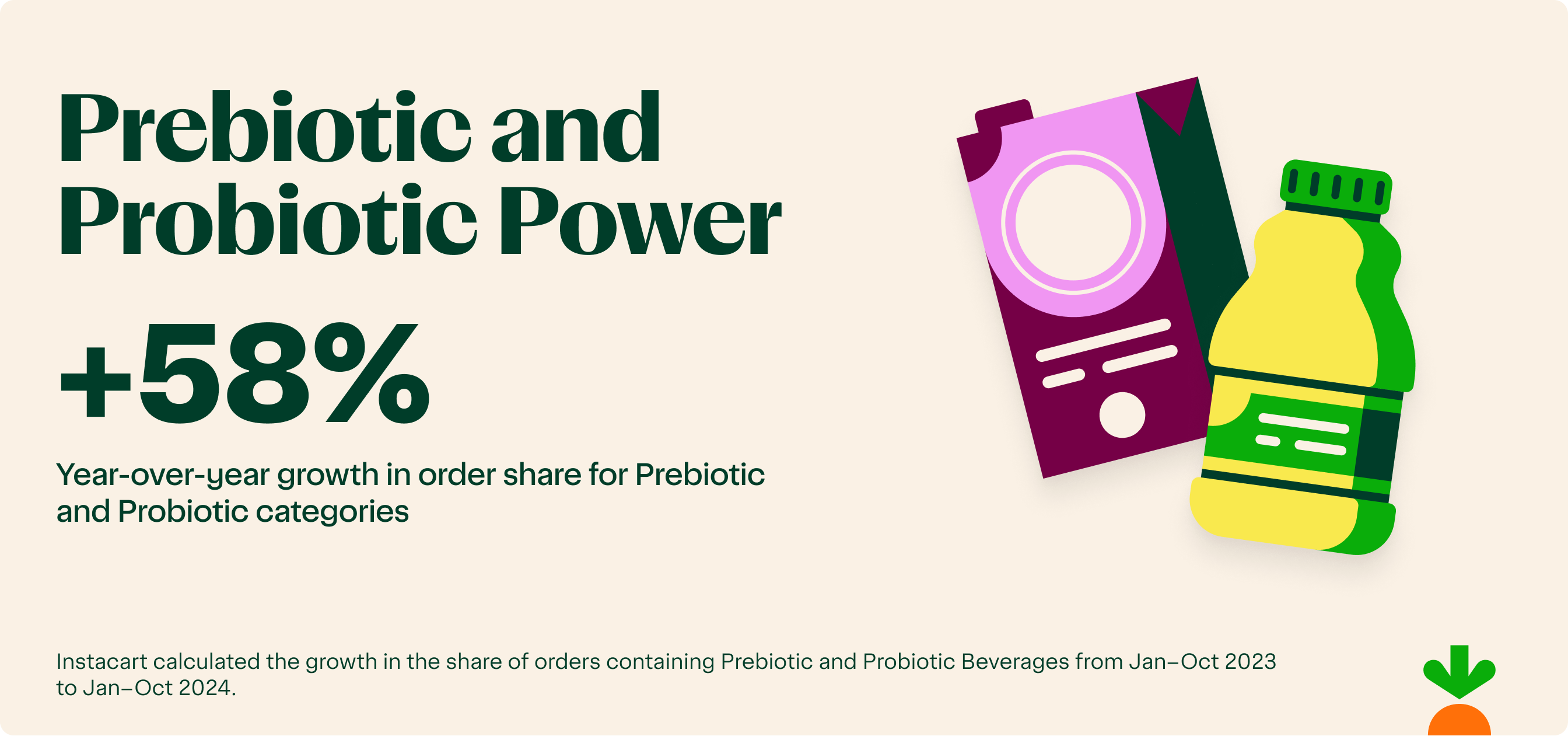
Prebiotic and Probiotic Power
Digestive health has taken center stage in the wellness conversation, driving a surge of prebiotic and probiotic drink purchases. Prebiotic and probiotic drinks offer a convenient way to support a healthy gut, which is associated with health benefits like improved digestion, enhanced immune function, and mental well-being. This has contributed to a robust year-over-year category growth of 58%, illustrating the substantial consumer demand for gut-friendly options.
In today's fast-paced world, convenience reigns supreme and people are increasingly interested in making small shifts to improve their overall health and wellness, which could be as simple as subbing in a probiotic soda on occasion instead of a "traditional" one. Considering the massive category growth seen this year, it's likely the gut-friendly excitement will continue into the year ahead with even more consumers purchasing prebiotic and probiotic drinks.
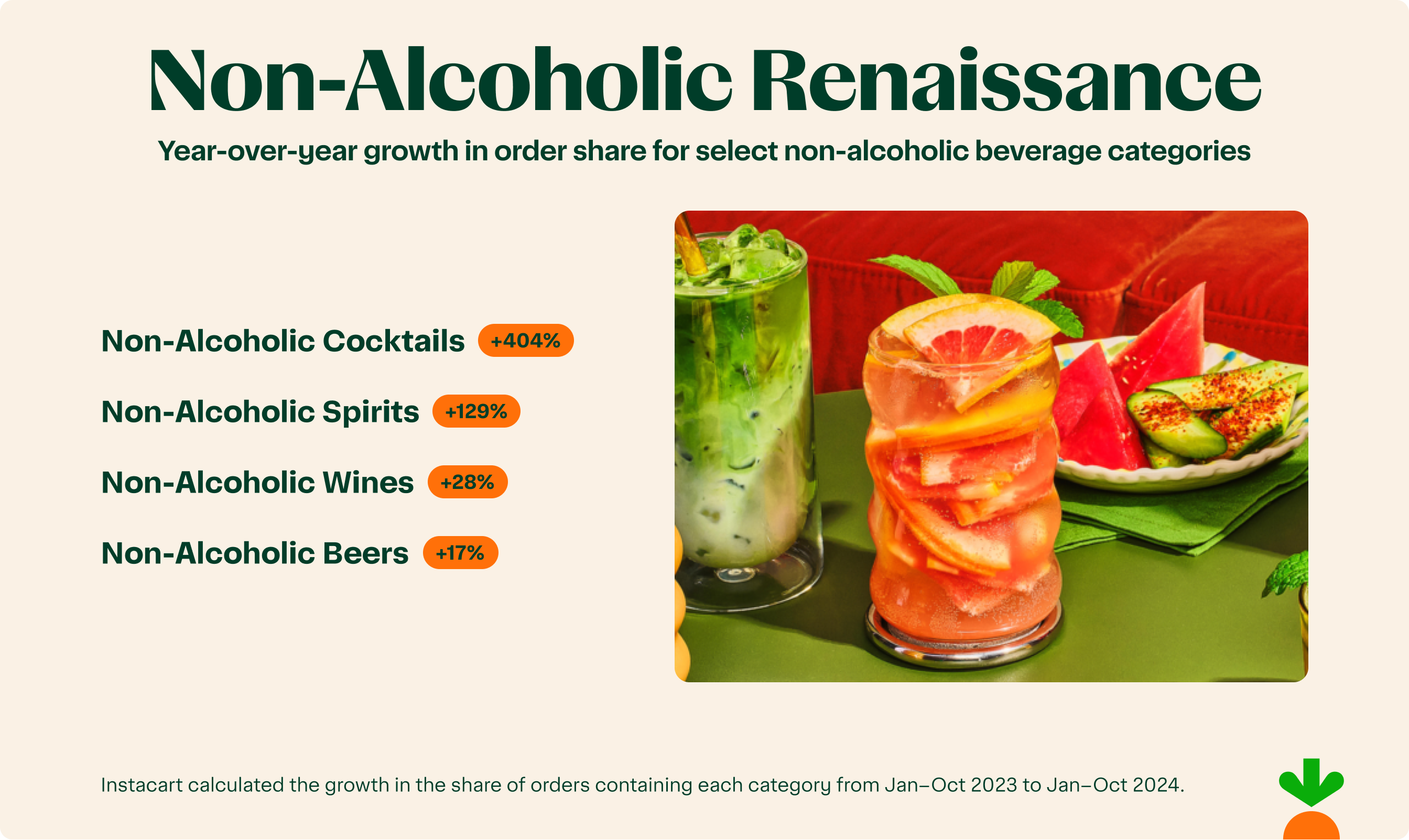
Non-Alcoholic Renaissance
The non-alcoholic beverage trend is making a significant splash, reshaping social norms and consumer habits alike. As more individuals seek to enjoy social gatherings without alcohol, alternatives like non-alcoholic beers, wines, and spirits have become more prominent. Instacart data shows that the share of orders containing canned non-alcoholic cocktails (+404%), non-alcoholic spirits (+129%), non-alcoholic wines (+28%), and non-alcoholic beers (+17%) have all increased over the past year.
Younger generations, particularly Gen Z and millennials, are at the forefront of this trend. Known for their health-first mindsets, they are more likely to experiment with non-alcoholic options in social situations and as a way to wind down at the end of the day. It's clear that the stigma around opting out of alcohol is fading, with non-alcoholic beverages providing a bridge that allows everyone to engage in the shared social experience of enjoying a drink.
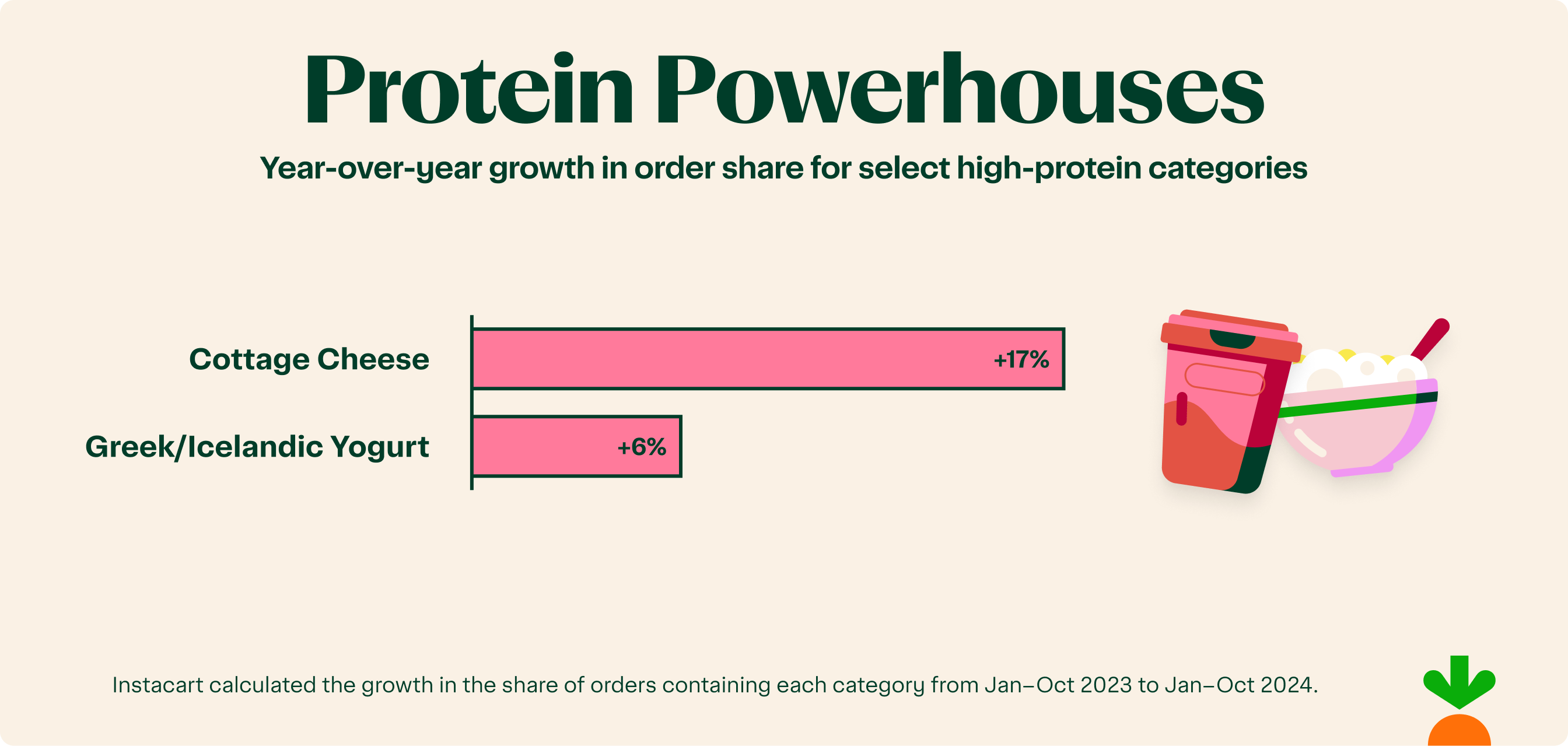
Protein Powerhouses
A high-protein diet has been celebrated across social media as a key way to lose weight and build muscle, spurring a movement of people looking for ways to boost their protein intake throughout the day. As a result, cottage cheese is re-emerging as a beloved food item with a 17% increase in the share of purchases in 2024, thanks to its protein-rich benefits. Whether churned into ice cream, added to smoothies, or baked into this viral flatbread recipe, cottage cheese has found its way back to people's refrigerators in a big way. In addition, purchases for protein-packed Greek and Icelandic yogurt have also increased by 6%, underscoring the current craze for consuming high-protein foods that have simple, transparent ingredients.
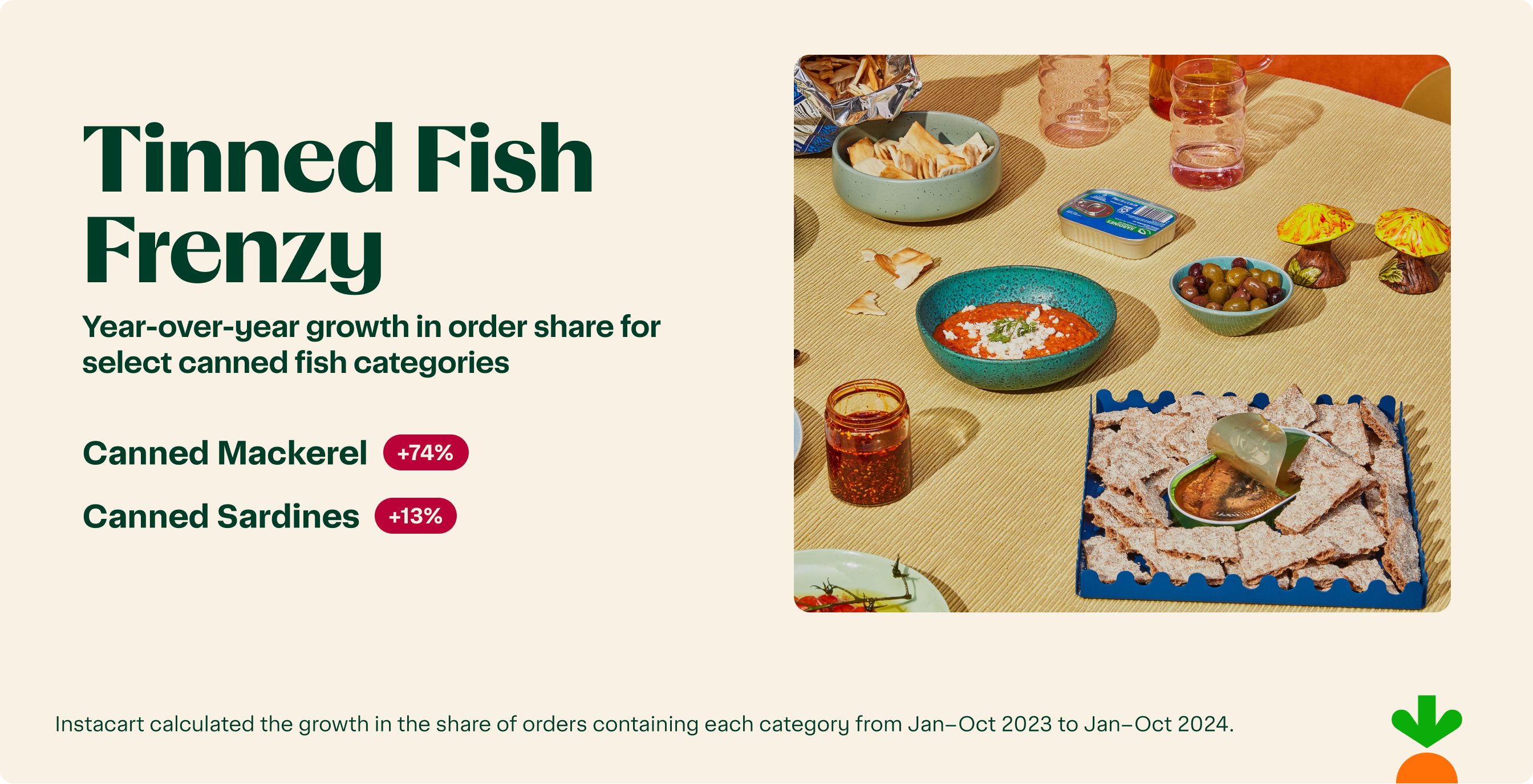
Tinned Fish Frenzy
In 2024, tinned fish made waves across social media and beyond. With an increase in order share for canned mackerel up 74% and sardines climbing 13%, these pantry staples are not just about convenience. Tinned fish platters and inventive recipes have captured the imaginations of Gen Z and millennials, linking seamlessly with the #tomatogirl aesthetic, which celebrates classic and nostalgic foods.
Incorporating tinned fish into meals echoes the rustic simplicity popularized by the #tomatogirl trend, speaking to a growing interest in cooking that's accessible, affordable, and packed with flavor. With consumers increasingly seeking fresh, simple, and wholesome ingredients, the appeal of tinned fish is likely here to stay as a staple for weekly meal planning and special dinners and spreads.
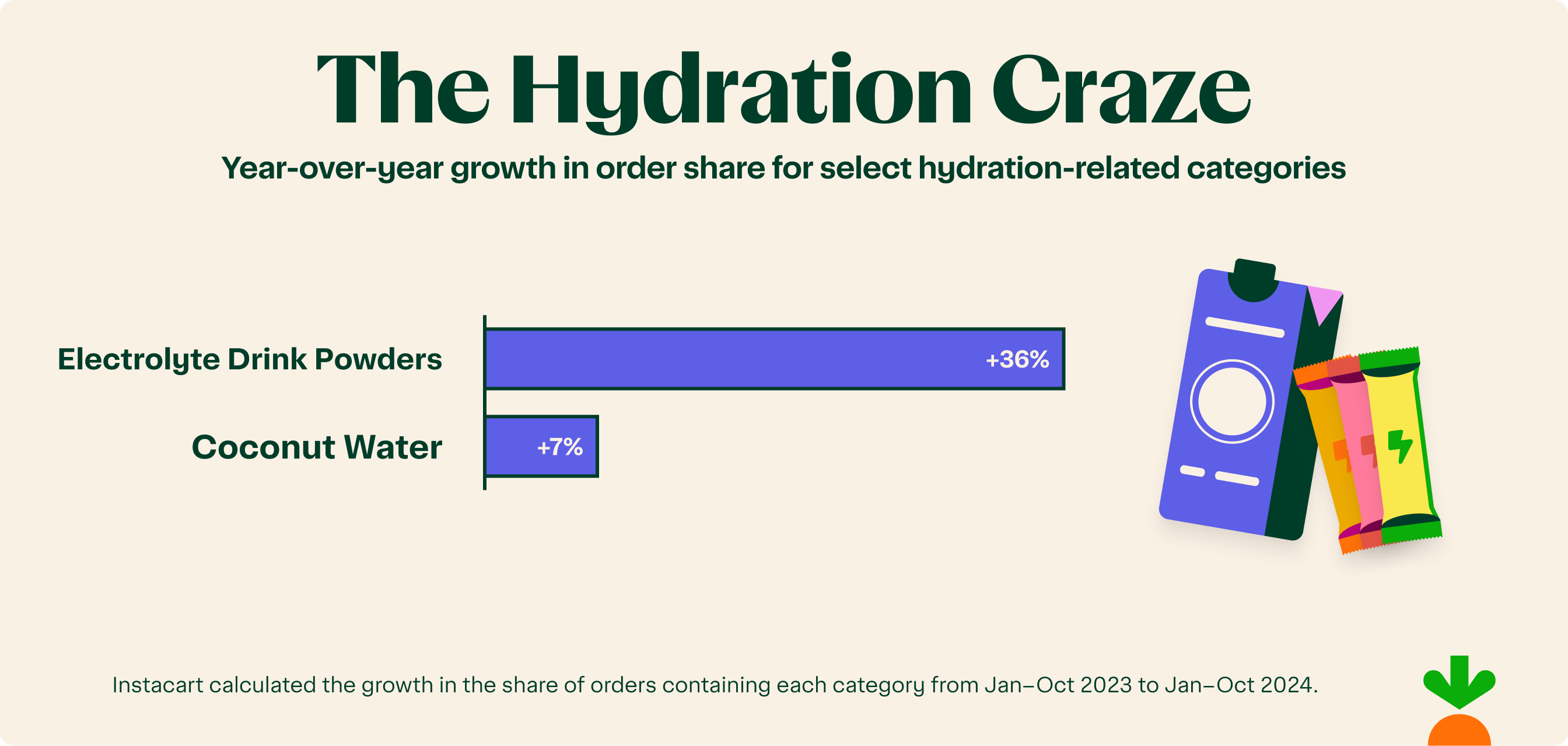
The Hydration Craze
Staying hydrated has always been a cornerstone of healthy living, but getting enough water throughout the day has recently become a hot topic of conversation. The bold 36% increase in order share for electrolyte drink powders in the past year reflects the growing cultural priority placed on optimal hydration. As seen on social media, stainless steel tumblers and water bottles have become the icons of this movement, as younger generations clamor to get the "it" vessel for hydration. This points to hydration being celebrated not just as a necessity, but as a lifestyle.
For health-conscious consumers, hydration content online has shared that drinking more water can not only lead to overall wellbeing, but also aid in more aesthetic perks such as clearer skin and weight loss. It's not just about electrolytes, though—the share of purchases for coconut water have risen by 7% over the past year, indicating there are multiple avenues for staying hydrated.
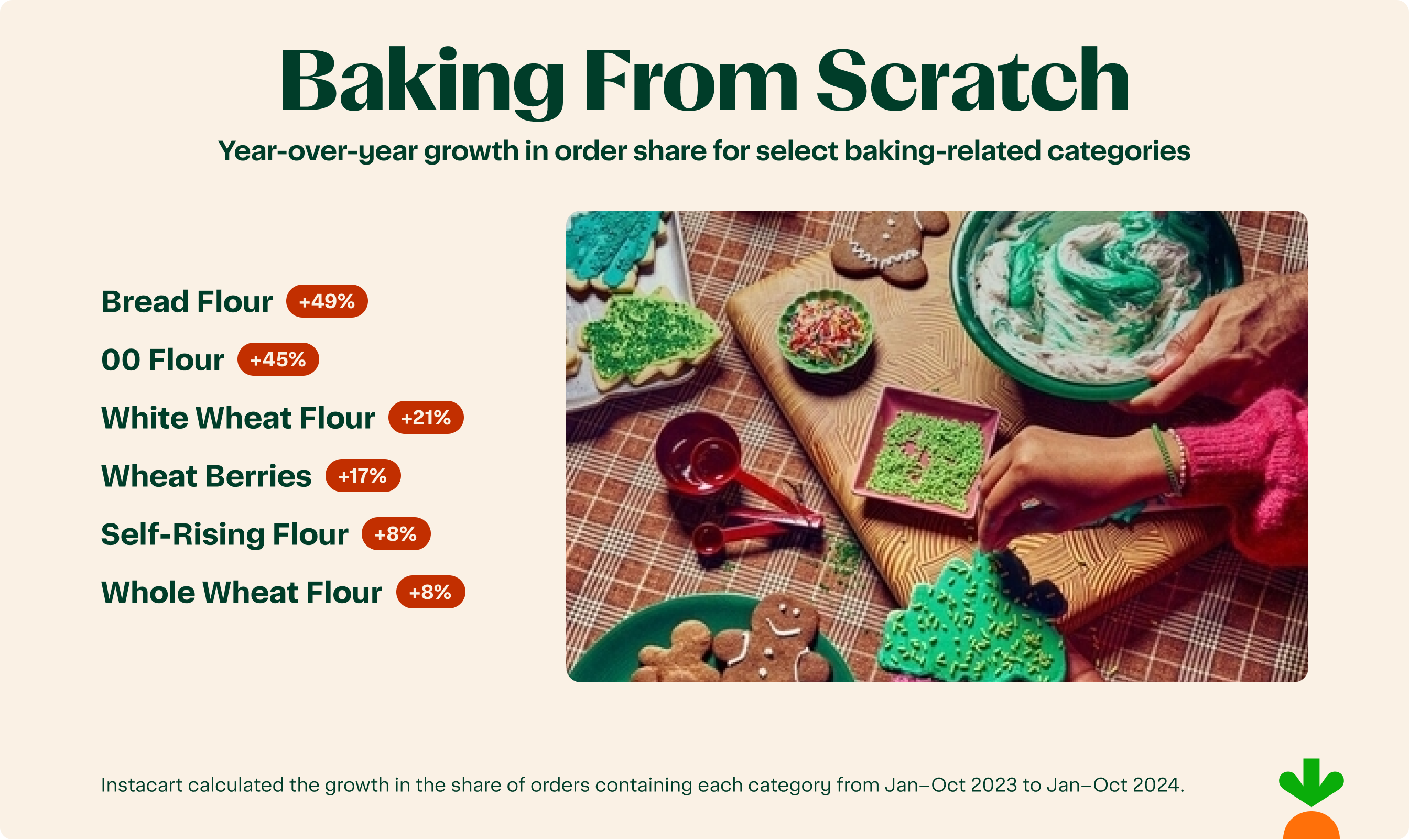
Baking From Scratch Resurgence
Baking from scratch is back in full swing and ovens are pre-heating everywhere as people rediscover the joy of breadmaking. While sourdough may have seen its heyday in 2020, the love for homemade baked goods shows no signs of waning. Data reveals a 49% increase in the share of bread flour orders, alongside a 17% uptick in wheat berry purchases. These trends reflect a growing social media movement encouraging less processed foods and more baking and cooking from scratch. This revival in breadmaking might be tied to the "homesteader" trend, which has garnered millions of views on social platforms. This lifestyle embraces the self-sufficient, back-to-basics approach of producing your own food and encourages people to find nourishment not just in consuming food, but in the very act of creating it.
Homemade breadmaking isn't the only food trend gaining in popularity: At-home pizza making is also having a moment. The share of orders with 00 flour, renowned for its quality in pizza making, have grown by 45%, while orders containing pizza sauce are also up by 9%.
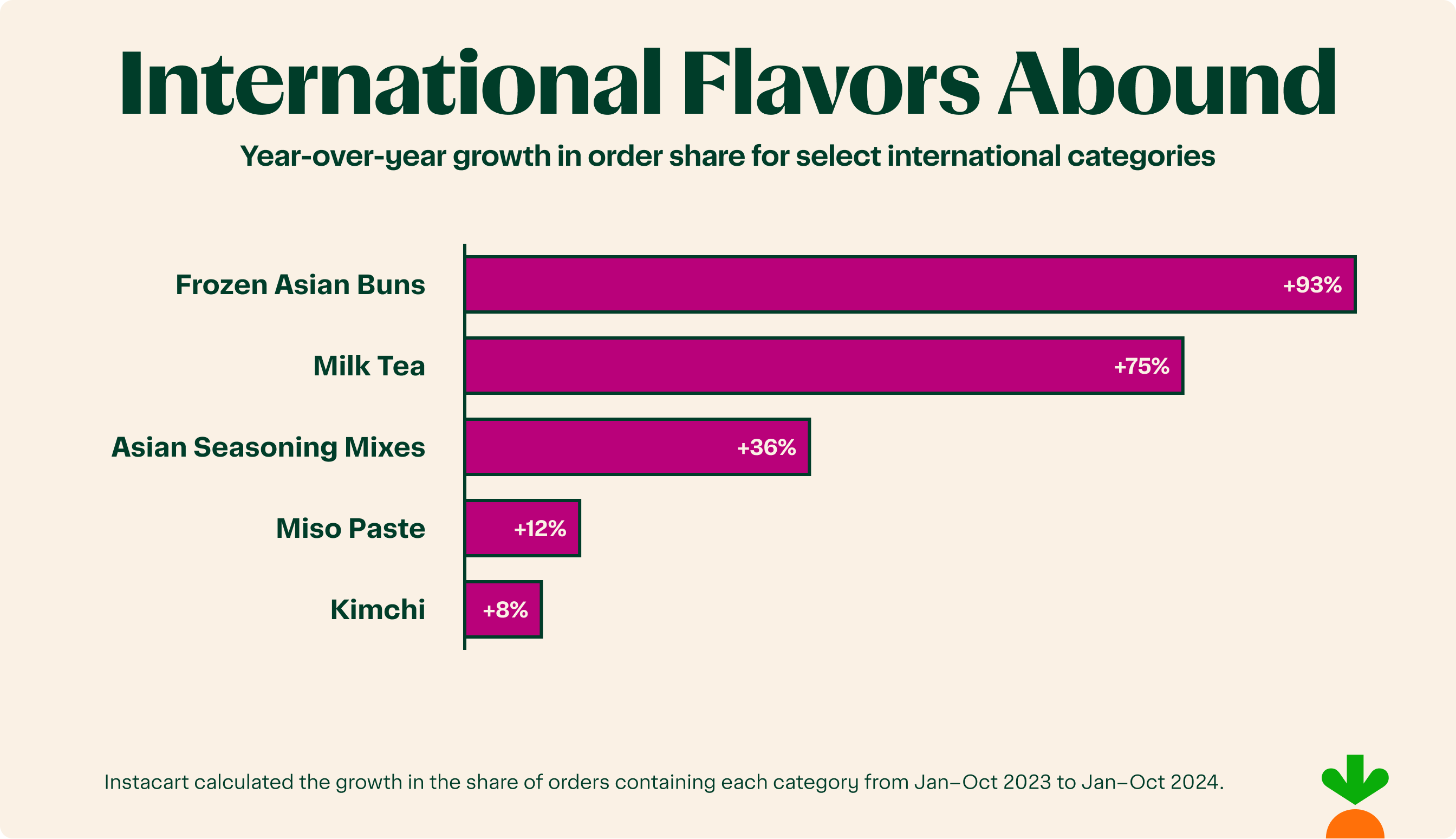
International Flavors Abound
As the world becomes more interconnected, the culinary scene is experiencing a vibrant transformation, with international flavors playing a more prominent role in daily meals. Diverse global cuisines, especially those inspired by Asian influences, are reshaping not only people's taste buds but also the items on their grocery lists. This trend mirrors a wider cultural shift towards inclusivity and exploration, highlighting a collective openness to embracing different culinary traditions.
The surge in popularity for items like milk tea (+75%), kimchi (+8%), and frozen Asian buns (+93%), showcases how cultural diversity and culinary innovation are becoming part of everyday dining for the masses. This growing appetite for international flavors is sparking creativity in food production and distribution, as grocery stores are now brimming with a vast selection of international ingredients and packaged foods. Given the rapid growth of these items, it's likely that new flavor explorations will continue into 2025.
As we step into 2025, these emerging food and grocery trends highlight a move toward prioritizing health, cooking (and baking) from scratch, and exploring different cultures through food.
This story was produced by Instacart and reviewed and distributed by Stacker.
